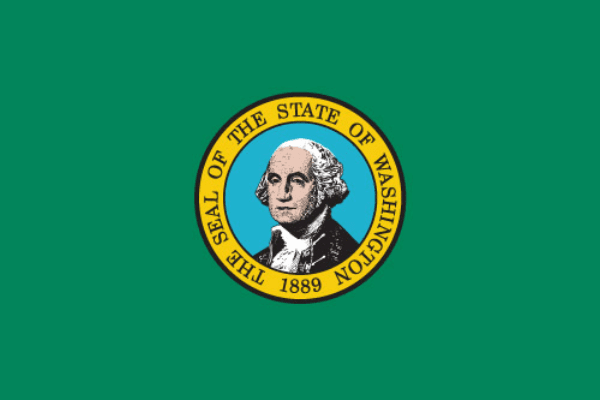Applying for an Exemption to Washington State’s New Long-Term Care Tax
UPDATE: As a further update on WA Cares Act, state lawmakers passed a law Jan. 27 to delay the long-term care program and the corresponding collection of the payroll tax until July 2023. For companies that chose not to collect the tax, no further action is required. For those that chose to collect the tax, the best practice is to make a full refund to employees as soon as possible. The bill stipulates that any premiums collected should be refunded within 120 days. We look forward to monitoring the progress of WA Cares and will provide updates as they become relevant. This article was originally published Oct. 7, 2021.
Earlier this year, we shared the details and planning implications of Washington State’s new long-term care tax, the first such law passed in the United States. Beginning on January 1, 2022, employers will initiate payroll deductions for the WA Cares Fund, designed to make long-term care (LTC) affordable for all state residents.
You may qualify for an exemption to the WA Cares tax, potentially resulting in thousands of dollars in annual savings. However, the deadline to take advantage of these exemptions is quickly approaching. Review this guide to the current WA Cares exemptions and learn how to opt-out if you qualify.
Basics of the WA Cares Tax
The tax will total 0.58 percent of your W-2 income with no maximum limit. For example, employees who earn a $125,000 annual salary will pay $725 toward WA Cares in 2022.
State residents can apply for benefits after paying the WA Cares tax for at least three of the past six years. If you pay the tax for 10 or more consecutive years, you qualify for lifetime LTC benefits through the state. You must work at least 500 hours in a single tax year for that year to count toward eligibility.
In addition to paying into the WA Cares system for the specified amount of time, eligible claimants must show they need assistance with at least three activities of daily living (e.g., managing medications, using the bathroom, and dressing).
Eligible individuals can receive a lifetime benefit of up to $36,500 (subject to future adjustment) for qualifying services. The state estimates that 20 hours of home care a week has an annual cost of $32,000, so this program serves more as partial financial relief than complete coverage for LTC needs. If you already have private LTC insurance, you can use state benefits to supplement your existing coverage.
WA Cares covers a flexible range of services, including home safety evaluations and modifications, meals, transportation, dementia care, and emergency response systems. In contrast, many private LTC insurance programs cover nursing care only.
If you own a business or are otherwise self-employed, participation in WA Cares is optional. To participate, self-employed individuals must pay 0.58 percent of their net earnings and gross wages from a business entity if applicable. Note that business owners who are treated as employees will still be subject to the tax on the wages they pay themselves.
After retirement, you no longer need to pay into WA Cares to receive benefits when you need them. In contrast, private LTC insurance requires permanent premium payments for the life of the policy. In addition, the cost of your policy may increase over time.
Available Exemptions
Self-employed individuals and people who buy private insurance coverage are exempt from the mandatory LTC tax. If you receive an exemption, you cannot enroll in WA Cares in the future.
Self-employed individuals who want to participate in the state LTC program must opt-in after January 1, 2022. If you are self-employed and do not wish to participate in WA Cares, no action is required.
For some people, private LTC coverage may cost less than the state program. However, you must buy a qualifying policy before November 1, 2021 to apply for the exemption. According to the Washington Office of the Insurance Commissioner, eligible policies must cover care for at least 12 months after a prolonged illness or disability outside a hospital acute care unit for someone who cannot complete one or several activities of daily living.
To avoid purchasing an LTC policy that does not meet exemption criteria, check the state’s list of approved LTC care insurance providers. You can use the list to see if an existing policy or rider you own qualifies you for WA Cares exemption.
Unlike state coverage, which only applies if you still live in Washington State when you need long-term care, independent private coverage goes with you if you retire out-of-state. We recommend this strategy for most families with more than $300,000 in W-2 earnings, although households at other income levels may benefit as well, depending on age and other factors.
The Exemption Process
If you decide to seek an exemption to the WA Cares tax, you must apply to the Employment Security Department by December 31, 2022. Applications are available as of October 1, 2021. To qualify for an exemption, you must be at least 18 years old and have proof of an eligible LTC policy.
To apply, navigate to the WA Cares Fund website and select “Apply for an Exemption.” You do not need a copy of your policy to file the exemption.
Here are a few things to keep in mind as you navigate the application process:
- The system is crashing on occasion. If you’re unable to proceed, keep trying.
- Have a PDF or JPEG file of your driver’s license on your computer available for upload.
- You will not receive a confirmation email after submitting your application. Upon submission, take a screenshot from your computer or phone for your records.
- The state will not immediately send you a confirmation letter in the mail.
- The state reserves the right to audit anyone claiming an exemption, so make sure you can locate your policy if needed.
If you receive approval for an exemption, the state will send you an exemption letter that you must provide to your current employer and all future employers. The exemption begins in the tax quarter after you get your approval letter. If you do not give employers the approval letter, you cannot receive a refund for withheld WA Cares payroll tax.
Because an exemption disqualifies you from these state benefits for life, it’s important to carefully consider your options with a professional advocate.





